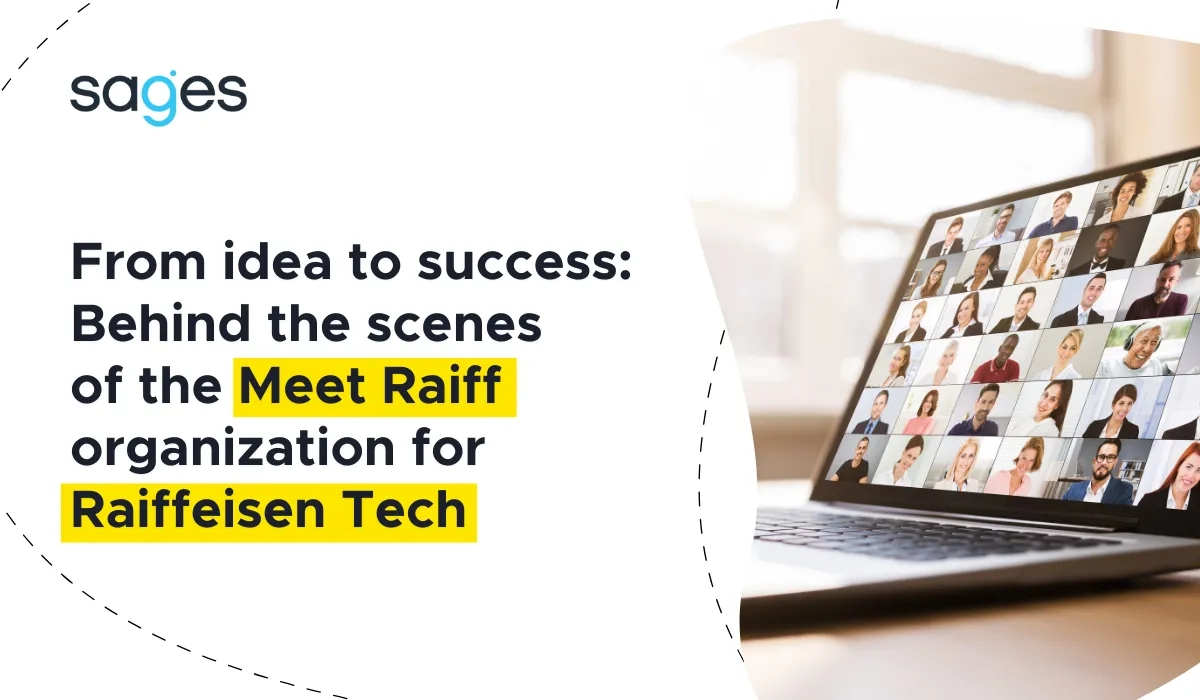What determines whether a training session is successful or not? To this question most people will answer that it depends on whether the trainer has the right knowledge and experience in the training topic. This is also true, but it is not the only factor for success. Analyzing several thousand post-training surveys and exchanging opinions among trainers, we have come to believe that there are at least seven criteria for the success of a training service, which we outline below and based on which we have created our own best practices for conducting training.
1. setting the organization's goals and individual objectives
Training is supposed to bring real benefits. For this to happen, the first and key prerequisite is to establish the purpose of the training in the pre-training analysis process. Both the organizational goals and the individual goals of each participant must be established. The trainer in the process of gathering requirements must not settle for easy answers like "we want to learn Java," but inquire into the deep objectives of the training. For example: "we are starting a project in a particular stack, but we have no experience in it, in view of this, after the training we want to start work efficiently and avoid unnecessary mistakes". Objectives are defined in the areas of knowledge*(what I will know*), skills*(what I will be able to do*, especially important in "hard" training), attitudes (howmy daily work routinewillchange) and emotional*(how the training will affect subjective personal development, self-esteem*, etc.).
The topic of training objectives has already been covered in this blog.
In the training room, the trainer reminds and revises the individual training objectives, and shows how the training plan he has prepared corresponds to the goals set. This is a key element in building commitment among a group of participants. We want to take the trouble of learning if we know that the goal is for us --- each individual participant --- relevant and worth our attention.
2. authority of the trainer
We already know what is to be the result of the training and we are convinced of it, then a natural question arises among the participants --- whether this particular trainer is experienced and competent enough, to put it brutally --- "is he worth listening to?". In the case of internal training --- for example, implemented by a teammate --- we know in advance who we are dealing with, what the colleague represents, what authority he has in the current company.
In the case of training carried out by a training company, the authority of the trainer, because that is what we are talking about here, has to be built each time with a new group.
Building authority with Sages trainers comes naturally --- the trainings are implemented by practitioner trainers who work in projects every day. References during the training to the trainer's personal experience, problems he or she has encountered, or lessons learned in terms of best practices naturally build the belief in the group that this is the right person in the right place.
It should also be noted that, in addition to the trainer's personal experience from his own written code, the trainer has the experience of the teams within which he has implemented projects or for which he has provided training, audits, or consulting services. Such collected and generalized experiences are even more valuable than even perfect knowledge of technology, as they allow trainees to learn about actual, and not alleged, best practices or problem situations that the trainer encountered in his and his clients' projects (of course, without citing company names or confidential information). The trainer's authority is also backed by the authority of Sages, resulting from thousands of satisfied people and thousands of analyzed post-training surveys.
The trainer's authority is built naturally during the training, during the trainer's quoting of real project cases, nevertheless it is crucial that when opening the training the trainer presents his experience in the subject from which he conducts the training. There are cases on the market of carrying out trainings by people who do not have much practical experience, which causes groups to be very distrustful of the trainer as long as he does not clearly show that his experience is sufficient to be a mentor. That's why it's important for the group to be confident from the start that they are working with a professional.
However, it is worth bearing in mind that authority is hard to build, but very easy to lose.We do not expect trainers to be theoreticians who know the specifications by heart, so there may always be a question from the floor about a detail that the trainer will not know the answer to at the moment. The key is for the trainer to be able to say straightforwardly that he or she needs to work out the answer to this question, e.g. by reviewing the documentation, rather than trying to play the infallible person at all costs. This is because such an attitude will give rise to suspicions that he or she is not a person of integrity and will project low confidence in the content that the trainer is conveying.
3. good atmosphere
In order for participants to be receptive to what is going on in the training room there must be a good atmosphere --- both in a general and individual sense. A trainer who builds up his authority "too much" may, in the process, build distance from the group. However, the trainer must remember that, apart from the fact that he or she is significantly superior to the group in skills with a given technology or issue, he or she is actually the same programmer/professional as the participants, and from this perspective (rather than that of a bloated expert) it is much easier for him or her to gain trust and impart knowledge. There are also individual cases in the room, there are times when someone is trying to make his own goals a priority, there are times when someone is doing a little worse, meanwhile he is reluctant to reveal it because his colleagues are in the training room, etc. These and many other cases can negatively affect the atmosphere in the group, so trainers are prepared to identify such situations to be able to ensure the comfort of each individual participant.
4 Optimal training plan
Having already known the objectives of the training, the key next step is to ensure that the available time is used optimally. The workshop concept plays a key role here. We try to outline a realistic application/tangible end product to be created during the training, which is closest to the expectations of the participants. We then prepare a workshop schedule that de facto corresponds to milestones in creating the application together. To the workshop tasks that result, we add only the theory that is necessary for the implementation of this workshop, thus avoiding unnecessary discussion of mechanisms that are not the most relevant and can be independently learned by the participants during their later work, and focus on the key aspects. The schedule also allows us to maintain an even and appropriate pace of training.
5. systematic and effective transfer of knowledge
You can be a great authority and know what issues are important and necessary, but you also need teaching skills, patience and empathy. Especially with groups that do not have much professional experience. These things can't be taught from a book, it takes first of all talent and many hours of working with people to observe what methods work, how people react to them, etc. A good didactician must understand what are the learning patterns of adults, what are the individual learning styles, how we achieve successive levels of competence, and finally master as many methods of working with a group as possible, such as being able to "arrive" with a group at good practices, rather than communicating them, because that is the only way for the group to remember them and be convinced of them, or being able to convey the necessary theory without doing it in the form of a "lecture." This is certainly a topic for a separate article.
6. group and trainer involvement
The involvement of the group is a derivative of all the factors mentioned earlier, that is, the belief that the trainer is worthy of our attention, that the objectives are relevant to us, that the workshop is conducted in an interesting and varied way, that the naked eye can see that our skills are growing. However, it is important to remember that training sessions are very exhausting for participants, so the role of the trainer is to ensure that engagement is maintained throughout the training. This is expressed in a number of activities or decisions, e.g. sharing solutions to tasks (instead of working with each participant to see the task through to completion) can result in the group waiting instead of working, and the trainer instead of helping --- sharing ready-made materials. We pay a lot of attention to these issues when preparing trainers for their work.
A certain separate topic is precisely the trainer's own commitment. If the trainer lacks commitment it is hard to arouse it in the group. If the trainer is passionate about a particular technology, commitment comes easily, but it can also happen that the trainer has a lot of experience, but as a result has lost his passion for the technology, because he is aware of its shortcomings. In such cases, the trainer must derive enthusiasm and satisfaction more from, for example, helping the client avoid costly mistakes due to the pitfalls of the technology than from the fact that the technology is cool. In any case, without enthusiasm, not a move.
7 Constant feedback
The role of feedback is obvious. However, in the case of training, feedback to the trainer must not be limited to a post-training survey, because such feedback can be used in a very limited way. In case an important issue is missing from the training, or someone did not do very well, and the trainer did not observe it, the lessons learned from the survey will no longer help that particular group. That's why we always strongly encourage participants to share their comments openly, and we make sure to give each participant time to talk individually --- and to ask about their impressions of the training.




